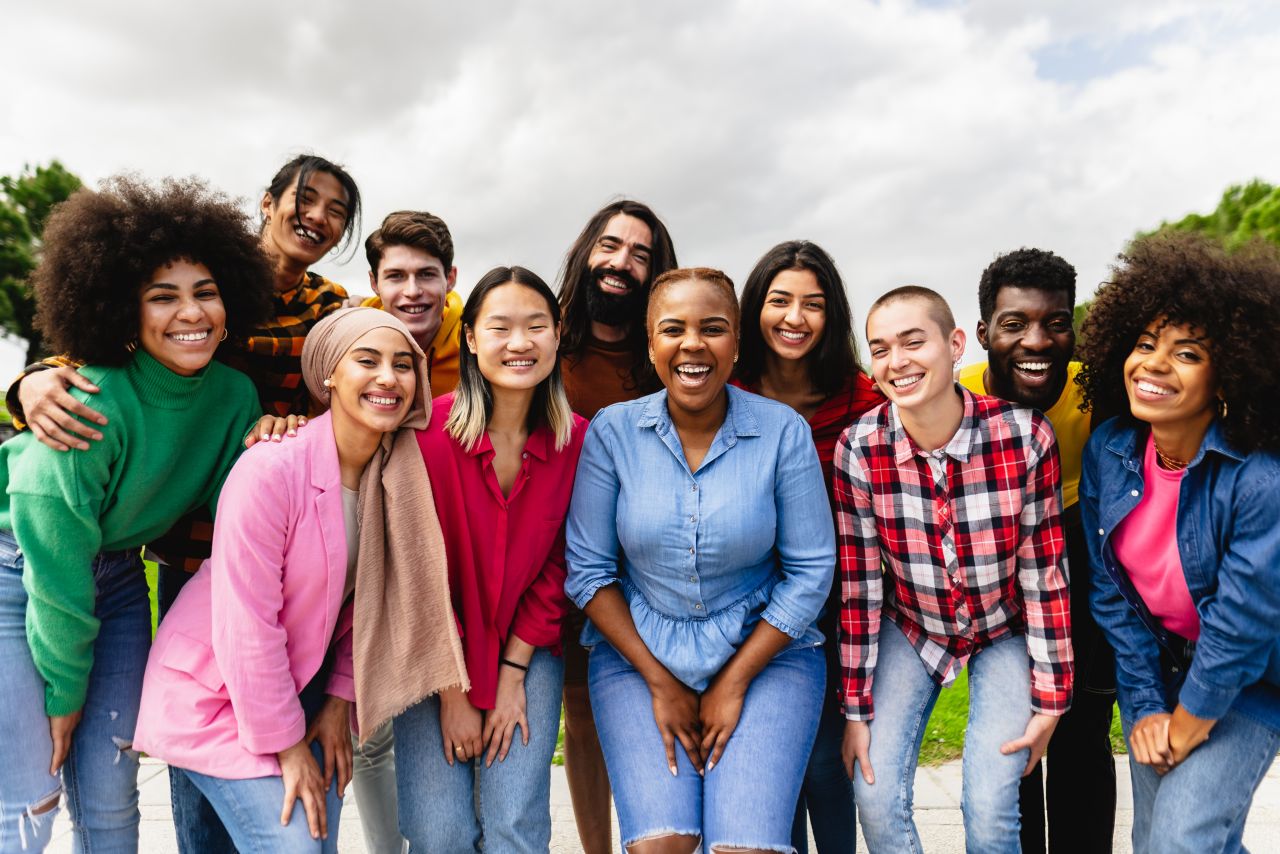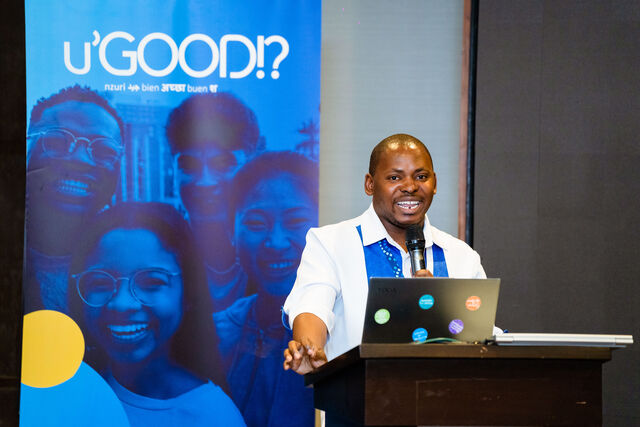New research project on youth in the Global South could help young people worldwide
The world stands to benefit from a new five-year multinational research programme exploring how best to secure the wellbeing of young people in the Global South.

The u’GOOD research programme into young people and relational wellbeing, funded by Fondation Botnar, a Switzerland-based philanthropic foundation dedicated to young people’s wellbeing, is beginning fieldwork. South Africa’s National Research Foundation has been appointed programme and fund manager, and the country’s Human Sciences Research Council is the lead research organisation, chosen for its knowledge, leadership and expertise in human and social sciences research.
In a first for a research programme of this depth and breadth, the fairly new concept of relational wellbeing will be used to investigate the factors that affect the lives of young people in the Global South. At its heart is a fundamental principle: "why wellbeing is relational." This understanding will be co-constructed through 23 collaborative research projects that work directly with young people as partners, not just subjects, to identify and build mechanisms through which wellbeing can be promoted and protected. Rather than extracting knowledge about young people, these research studies will generate understanding with young people, developing theory that emerges from their lived experiences and reflects a more complete view of the world.
We expect to gain this fuller perspective through the concept of relational wellbeing, which goes a step further than the more established research concepts of material wellbeing (the assets people have access to) and subjective wellbeing (the cultural values and ideologies that inform their perception of the assets and services they have access to). Relational wellbeing also encompasses the social, collective and structural dimensions of wellbeing, including an individual’s relationship to the environment. It explores what an individual has through or because of others.
What is exciting is that we already know that relational wellbeing provides a fuller concept of how young people in the Global South are responding to the opportunities and adversity they face. Youth in the Global South have collective and unique cultural resources that deserve full investigation.
In short, without this concept, we have an anaemic view of their lives, which is often characterised by lower material and subjective wellbeing than their northern hemisphere counterparts, but also by deeper interpersonal relationships and a greater need to make use of these to survive and thrive.
We believe our findings could benefit humanity, broadening our understanding of what constitutes wellbeing, and how to ensure wellbeing, and particularly youth wellbeing, in all corners of the world.
It’s vital work – there have never been so many young people alive.
Using the United Nations’ definition of youth, there are 1.2-billion young people in the world – people between the ages of 15 and 24. Nearly 90% of them live in the Global South.
The research programme and its 23 individual research projects cover nine countries across the Global South – Colombia, Ecuador, Ghana, India, Indonesia, Romania, South Africa, Tanzania and Vietnam.
Using a relational wellbeing approach, the u’GOOD Young People and Relational Wellbeing research programme aims to test and further develop relational approaches to young people’s wellbeing in conceptual, methodological and operational terms; and to generate empirical insights into “key contemporary challenges with and for young people’s wellbeing in urban and peri-urban environments, and how young people are addressing these”.
The programme will investigate four thematic areas:
- Young people and livelihoods: exploring, in a global context where regular employment is increasingly unavailable, how young people are assembling their livelihoods and what new markers of purpose, meaning and identity are emerging
- Young people and mental health: exploring, where ruptures in traditional forms of socialisation are apparent and community and face-to-face interaction opportunities have diminished, how young people are navigating and constructing the role of connectedness to positive identities and wellbeing
- Young people and digitalisation: investigating the increasing role of digitalisation in society, where access to and inequality in the digital realm will significantly shape opportunities for wellbeing, and where it is important to understand how young people construct themselves as relational subjects in a digital age
- Young people and climate change: looking into how young people’s wellbeing can be sustained and advanced in responses to the climate emergency, and where, for vulnerable groups, including young people, compounding factors endanger their wellbeing, with serious implications for their physical and mental health, education pathways and livelihood prospects
These themes inform the 23 separate research projects, from an exploration of how different types of neighbourhoods affect relational wellbeing in young people in Ecuador, to investigating climate-related distress among youth in Tanzania while simultaneously promoting clean energy education through school climate clubs and practical skills training.
Other projects include an exploration of how relational dynamics influence suicidal ideation and behaviour in low- to middle-income countries, and especially in South Africa, Tanzania and Ghana, where youth suicide rates are rising; and a deep-dive into how digital technologies such as social media provide opportunities for negative behaviour such as cyberbullying in Vietnam, while also being used to provide mental health interventions and enhance youth engagement, especially where access to traditional care is limited.
An Indonesian project looks at early marriage and how it limits young women's autonomy due to strong familial and cultural expectations, examining how relational wellbeing, especially within collective and patriarchal decision-making structures, shapes the lives of early-married youth.
Another project, looking at youth in Ghana, South Africa and Tanzania, explores how historical traumas such as colonialism and apartheid continue to impact the relational wellbeing of youth in Africa, emphasising the importance of communal ethics rooted in the Ubuntu philosophy.
The u’GOOD research programme represents a pioneering and much-needed step towards understanding and promoting the wellbeing of youth in the Global South. By centring the concept of relational wellbeing – encompassing not just material and subjective dimensions, but also the social, collective and environmental factors that shape young lives – this initiative promises a more nuanced and complete perspective on what it means for young people to thrive.
Join the u'GOOD community of practice
Be part of a growing network of researchers, academics, organisations and young people committed to advancing research on relational wellbeing and young people in the Global South.
